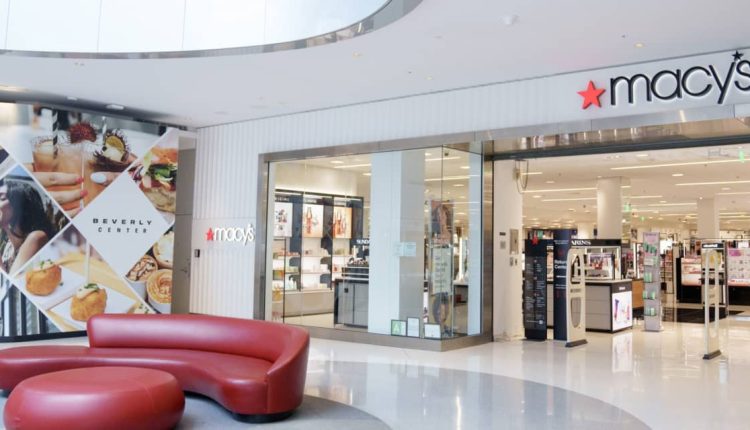Macy’s,
JCPenney, and other once-big retailers remain household names, even as their sector footprint has significantly shrunk.
That makes sense in a nation powered by consumer spending, but it also shows how public perception hasn’t necessarily kept up with the ever-shifting retail rankings. Investors might also be surprised to hear how cheap some common names have gotten.
Macy’s (ticker: M), the former department store powerhouse, has seen its stock drop 70% over the past five years, and plummet some 90% from its highs in 2015—the year that worries about e-commerce first rocked the retail sector. So far in 2023, the shares have lost nearly half their value.
Today, Macy’s market value is less than $3 billion, and its valuation has been similarly diminished: The stock changes hands for just 3.8 times forward earnings, according to FactSet. That makes it the 10th-cheapest stock in the S&P 1500 and the cheapest retailer in the index.
That’s not entirely surprising. It’s one of several retailers sounding alarm bells about consumer spending—which already has long been shifting away from department stores—as debt rises and its shoppers feel the pinch. The company has fought back, leaning into private labels and partnering with fellow mall stalwart Gap (GPS) to chase dwindling apparel dollars.
The next cheapest retailer in the S&P 1500 is athletic retailer
Hibbett
(HIBB), which owns the Hibbett Sporting Goods and City Gear stores. Its stock trades at 5.8 times forward earnings. That’s followed by Famous Footwear owner
Caleres
(CAL) at 5.9 times and women’s apparel retailer Chico’s (FAS), at 6.3 times.
Hibbett’s valuation is no shock either. While athletic retailers’ shares surged during the pandemic, the market has been skeptical of the group’s ability to keep growing, despite ongoing strength. Fellow smaller player
Academy Sports & Outdoors
(ASO) has a forward price-to-earnings ratio of just 6.5, while the biggest of the bunch,
Dick’s Sporting Goods
(DKS), trades at just 9 times.
Academy Sports—which Barron’s highlighted in the past—is “schooling the naysayers” after the retailer posted impressive second-quarter results last month, Wells Fargo analyst Will Gaertner said following the report. The “stock continues to be compelling,” he added.
Yet Caleres and Chico’s speak to how difficult the current environment is for discretionary retailers, and in particular apparel and accessory sellers that rose and fell with the fate of malls. Both companies’ shares have fallen double-digits in percentage terms over the past five years and have market capitalizations below $1 billion.
UBS analyst Jay Sole reiterated is overall bearish outlook for soft line retailers, which sell softgoods like clothing (as opposed to harder durable goods like appliances and furniture) for both the near term and the next year.
Market research shows consumer spending intentions for softgoods over the next 90 days declined 3.5% year over year in September, and fell from August.
“Our view is the coming slowdown is just one step of a multistep process which will play out over the next six to 12 months,” Sole writes.
In addition, the percentage of shoppers who say they plan to spend less during the coming holiday season also rose this month,” according to Sole’s own consumer survey.
Yet deteriorating growth trends and falling earnings could drag these retailers’ stocks and valuations even lower, despite their already big swoon. Soles says these retailers’ already diminished multiples could still drop as much as 27% as they struggle to find a bottom in the current cycle.
In other words, not only are these stores struggling to find buyers, but their stocks are as well.
Write to Teresa Rivas at [email protected]
Read the full article here

